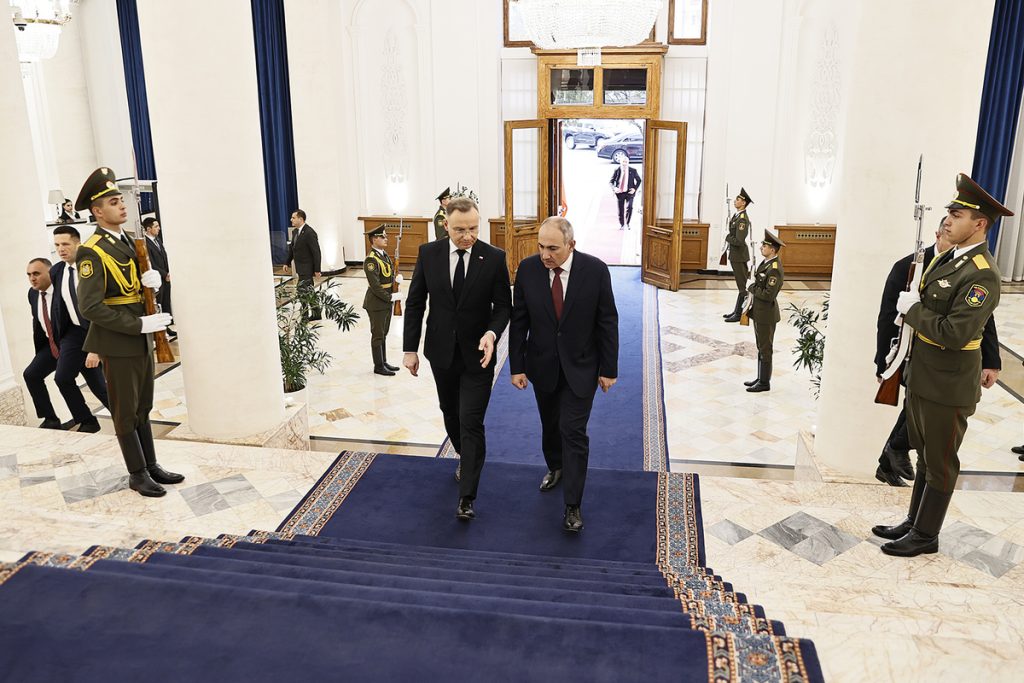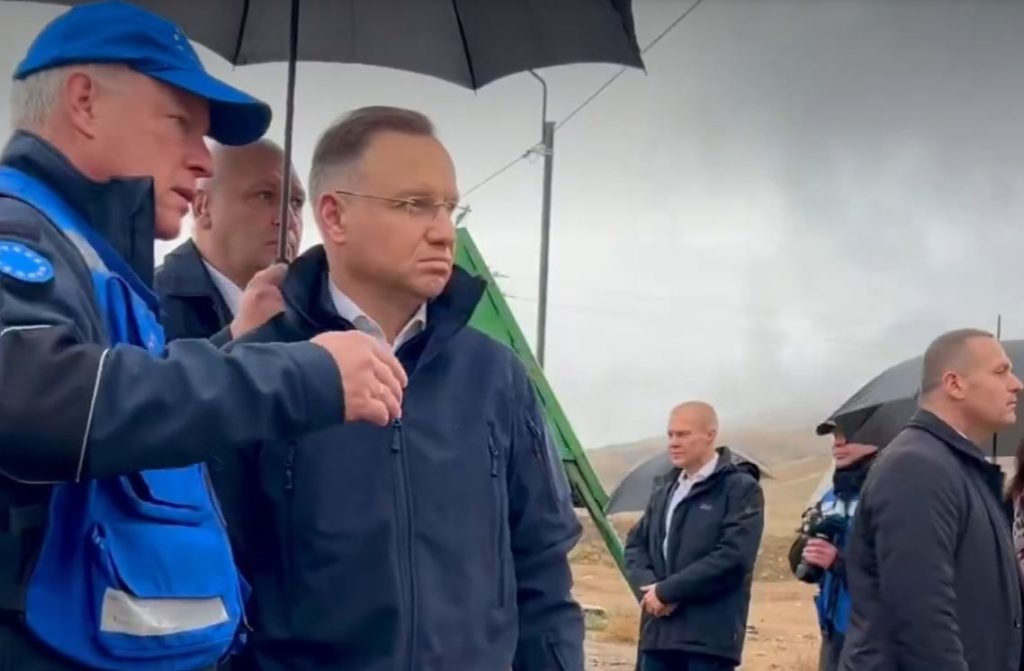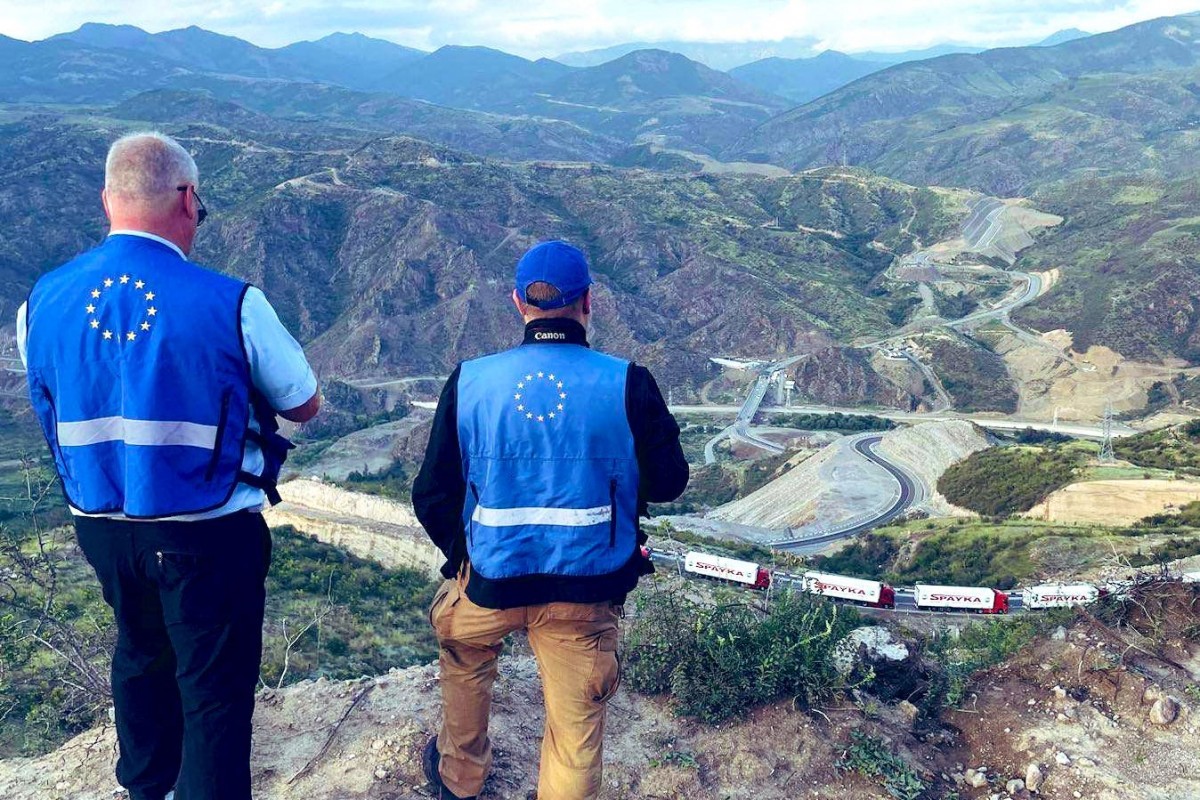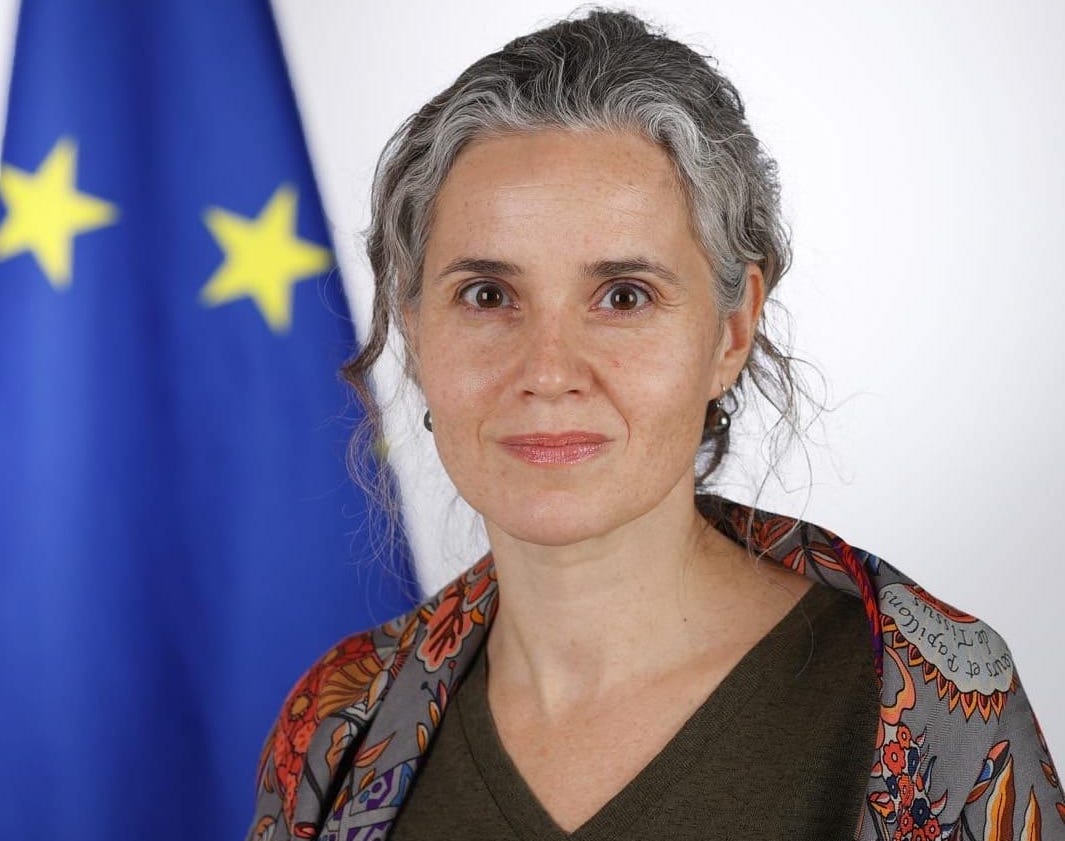'EU seeks clarity on Armenia’s priorities': Insights on Polish president’s visit
Polish delegation visits Armenia
A delegation led by Polish President Andrzej Duda visited Armenia for two days. On the first day of the visit, Duda met with Armenia’s leadership, and on the second day, he traveled to the Armenian-Azerbaijani border, where Polish observers participate in the EU monitoring mission.
Political analyst Boris Navasardyan believes that Andrzej Duda’s visit to Armenia was intended to clarify Yerevan’s priorities. According to the analyst, the EU seeks answers to certain questions where Armenia’s position remains unclear, particularly regarding economic cooperation with Russia and its membership in the CSTO military bloc.
“It’s not about pressuring us to withdraw from such formats. Rather, if we are talking about deepening relations with the EU, it is essential to have as complete an understanding as possible of the direction Armenia intends to take in its economic, security, and other policies,” the analyst stated.
- Armenian EU membership referendum backers gather more signatures than required
- “Visa granted, but denied entry to the Schengen area”: Stories of Armenian citizens
- “This is just the beginning”: Armenia will receive 10 million euros from the European Peace Facility
‘There is great potential for developing relations’
“I attach great importance to this visit in terms of fostering the further development of relations between Armenia and Poland. I believe there is indeed significant potential for enhancing these relations, which, unfortunately, I cannot say is being fully utilized,” Armenian Prime Minister Nikol Pashinyan stated during his meeting with Polish President Andrzej Duda.
Andrzej Duda highlighted that “friendly and good relations” have been established between the two countries, something he noted was absent before his presidency. He assured that Poland would support the strengthening of ties with the EU and the implementation of democratic reforms in Armenia. The president also welcomed the start of a dialogue with Armenia on visa liberalization.
Poland signals support for Armenia-Azerbaijan peace efforts
During a press conference, Andrzej Duda emphasized the importance of establishing peace and stability in the South Caucasus. He stated that Poland is prepared to support the process of peacefully resolving the Armenia-Azerbaijan conflict. Duda also noted that he had discussed this issue with the President of Azerbaijan during his visit to Baku for COP-29:
“We want Armenians to live peacefully on their land. Peace, of course, is also important for Europe. And we are ready to assist if needed.”

Andrzej Duda also affirmed that Warsaw is committed to helping integrate Armenia into the European family:
“If Armenia expresses interest, we are ready to assist. As the President of Poland, I can assure you that we are prepared to support Armenia in any matter.”
EU observers patrolling border
Armenian media paid considerable attention to Polish President Andrzej Duda’s visit to the border village of Yeraskh. During his visit, Duda participated in a border monitoring operation alongside EU observers. The EU civilian observers are stationed on the Armenian side of the border with Azerbaijan. In a post on X, the Polish president’s office noted that the deputy head of the mission is Polish national Marek Kuberski.

Notably, Duda chose the village of Yeraskh for the joint patrol. Since June last year, a metallurgical plant had been under construction there, but Azerbaijan demanded the project be halted, alleging it would “cause environmental problems.”
The construction site was repeatedly shelled by Azerbaijani forces, with two Indian workers involved in the project sustaining injuries from targeted fire. Ultimately, Baku achieved its objective, and the plant was relocated to the village of Ararat.
Political analyst Boris Navasardyan
Poland is a key member of the European Union, political analyst Boris Navasardyan notes.
Moreover, in 2025, Poland will assume the presidency of the EU Council. As the closest neighbor to Ukraine, Poland is deeply involved in addressing critical EU-related issues.
According to Navasardyan, the EU’s security system is undergoing significant changes, with Poland playing a pivotal role due to its possession of the second-largest land forces among member states.
Regarding Andrzej Duda’s visit to Armenia, the analyst suggests that the EU sought to clarify the potential scope of cooperation with Yerevan.
“We understand there are key issues in Armenia-EU relations, such as implementing the Comprehensive and Enhanced Partnership Agreement, the new partnership agenda, the presence of EU observers in Armenia, the visa liberalization process, and more.”
Navasardyan highlights Poland’s active participation in the observer mission. The two-year mandate of the EU observers in Armenia will expire in February, and its extension depends on the collective decision of EU member states. However, the analyst doubts that Armenian authorities have made a definitive decision or submitted a clear request to the EU to extend the mission:
“As far as we know, this hasn’t happened yet, and there’s very little time left. When time for European bureaucracy runs short, making a swift decision requires as much complete information as possible.”
Navasardyan notes that the diversity of statements from Armenian officials makes it difficult for European partners to discern Armenia’s priorities.
This uncertainty extends to economic issues as well. For instance, trade turnover is primarily increasing with Russia, which raises questions within the EU:
“The EU’s expansion, beyond security and political considerations, also involves ensuring economic stability and cooperation between markets. Economic cooperation with Russia and Armenia’s membership in the CSTO military bloc require further clarification. There may also be other areas where our European partners need explanations.”
Although Armenia has frozen its CSTO membership, it continues to actively participate in meetings of top prosecutors and investigative committee heads from CIS member states. Navasardyan stresses that these activities are directly tied to the security system.
Poland, he believes, is particularly interested in the dynamics of various countries’ relations with Russia. This stems from Poland’s geographic proximity to Russia and the potential for becoming a target of new aggressive actions if tensions escalate. Navasardyan suggests that Warsaw may have sought information in Yerevan to shape its own policies.
“I hope Andrzej Duda’s visit provided our officials with an opportunity to articulate their positions more clearly on all issues, thereby advancing Armenia’s European integration process,” Navasardyan concluded.
Polish delegation visits Armenia




















